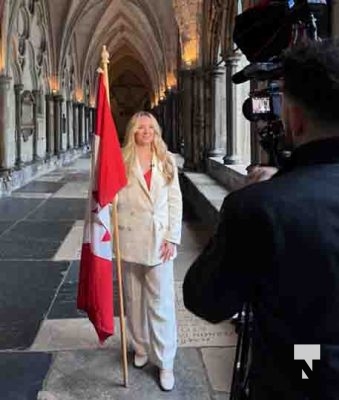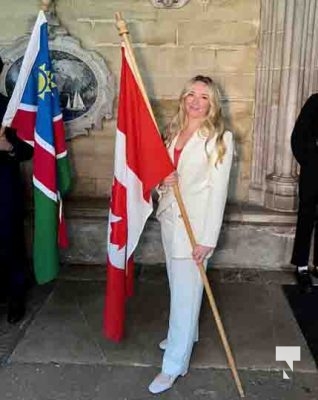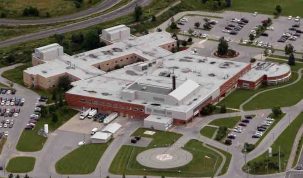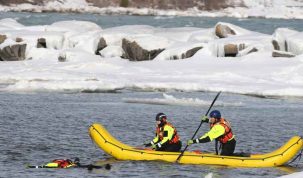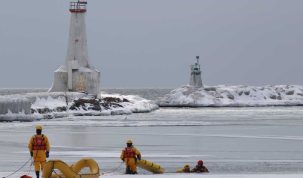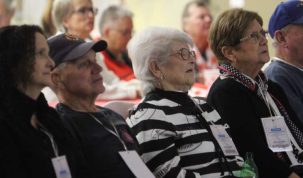By Cecilia Nasmith/Today’s Northumberland
Bewdley’s own Amanda Stubbs is focusing her formidable talents on a dire international problem that just may have an unlikely solution – reducing greenhouse gas emissions by storing carbon dioxide in the earth’s own rocks and minerals.
Currently in Scotland working on her doctorate degree in earth sciences at the University of Glasgow, the 27-year-old student told Today’s Northumberland, “I am particularly interested in exploring ways that mining, quarrying and farming can reduce their carbon footprint by using rocks as a material to store carbon, while also providing important nutrients to the soil and nearby land.”
The daughter of Jocelyn and Chuck Stubbs, she is an alumna of Plainville Elementary School, Dale Road Senior Public School and CDCI West. And it was in those early years that the course was set for the path she is travelling today, beginning on the shores of Rice Lake.
“My fondest memories are spent being on the water, either swimming, boating or collecting rocks along the shore,” she recalled.
“I initially became interested in the environment from my upbringing, and also from listening to my grandfather’s stories about being on different ships around the world. I was so inspired by all his travel stories, and wanted the chance to see the world in whatever career I ended up doing.”
From CDCI West, she went on to pursue a Physical Geography degree at Trent University. This is where her love for geology and climate-change mitigation began.
“In the fourth year of my undergraduate degree, I learned about ways that rocks can be used to store CO2, and I became intrigued to learn more,” she recalled.
Getting the opportunity to pursue her master’s degree at Trent with Dr. Ian Power “changed the trajectory of my career in the best way,” she said.
“I got to travel to South Africa, exploring some of the biggest diamond mines in the world to investigate how mines could use their waste material to store CO2.”
With master’s degree in hand, Stubbs knew she wanted to continue her education and work toward a geoscience doctorate. In 2021, she was offered a fully funded scholarship to continue her research in CO2 removal at the University of Glasgow, and the honours kept coming with last year’s award of the Canadian Centennial Scholarship Fund for her research contributions to Canada and the United Kingdom.
“Receiving this award has brought some incredible opportunities, including attending events in the presence of the High Commissioner of Canada in the UK,” Stubbs said.
“Earlier this year the CCSF nominated me to represent Canada at the Commonwealth Day Service of Celebrations in Westminster Abbey, London, England.”
This special day celebrates nations that belong to the Commonwealth, she explained, bringing representatives that span all the geographic regions along with their different religions and cultures.
Being Canada’s representative gave her the duty and the privilege of being part of the presentation to the Royal Family (including HM The Queen and HRH The Prince of Wales), carrying the flag of Canada, “a country I am so proud to be from, Having the opportunity to represent a country that values freedom, multiculturalism, rich diversity, natural beauty and more means everything to me.”
She also relished the opportunity to meet the 55 other flag bearers and learn about their countries and cultures.
“I never could have imagined getting an opportunity like this,” Stubbs said.
“But with the best support from family and friends, and inspiration from Dr. Power to pursue research in this field, it became possible.”



